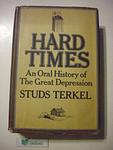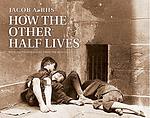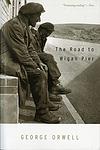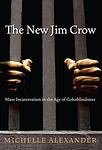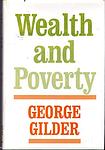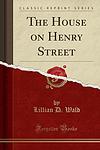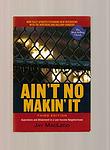The Greatest "Nonfiction, Poverty" Books of All Time
Click to learn how this list is calculated.
This list represents a comprehensive and trusted collection of the greatest books. Developed through a specialized algorithm, it brings together 284 'best of' book lists to form a definitive guide to the world's most acclaimed books. For those interested in how these books are chosen, additional details can be found on the rankings page.
Genres
The category of "Poverty" in books refers to stories that explore the experiences of individuals or communities living in poverty. These books may examine the social, economic, and political factors that contribute to poverty, as well as the personal struggles and triumphs of those living in poverty. They may also shed light on the inequalities and injustices that exist within society and the impact they have on marginalized communities. Overall, books in this category aim to raise awareness and understanding of poverty and its effects on individuals and society as a whole.
Countries
Date Range
Reading Statistics
Click the button below to see how many of these books you've read!
Download
If you're interested in downloading this list as a CSV file for use in a spreadsheet application, you can easily do so by clicking the button below. Please note that to ensure a manageable file size and faster download, the CSV will include details for only the first 500 books.
Download-
1. Let Us Now Praise Famous Men by James Agee
This book is an in-depth examination of the lives of three tenant families in the South during the Great Depression. The author combines detailed descriptions, journalistic reporting, and poetic prose to capture the harsh realities of poverty, racial discrimination, and the struggle for survival. The book also includes evocative photographs that further illustrate the living conditions and daily lives of the families. The work is a profound exploration of the human condition, offering a raw and unflinching look at the effects of economic and social injustice.
-
2. The Souls of Black Folk by W. E. B. Du Bois
This seminal work is a collection of essays that explores the history and condition of African Americans at the turn of the 20th century. It delves into the issues of race, class, and the socio-economic realities faced by black people post-emancipation. The author employs a combination of history, sociology, and personal narrative to present a powerful critique of American society, highlighting the struggle for civil rights, the importance of black spirituals, and the concept of "double consciousness" - the idea of viewing oneself through the lens of a society that sees you as inferior.
-
3. Angela's Ashes: A Memoir by Frank McCourt
This memoir is a profound and heart-wrenching account of the author's impoverished childhood in Limerick, Ireland, during the 1930s and 1940s. The story is filled with tales of survival in the face of extreme poverty, an alcoholic father, a struggling mother, and the deaths of three siblings. Despite the harsh circumstances, the narrative is infused with a sense of humor and hope, demonstrating the resilience of the human spirit.
-
4. Down and Out in Paris and London by George Orwell
This book is a semi-autobiographical work that explores the harsh realities of poverty in two of Europe's most renowned cities. The protagonist, a struggling writer, first experiences the squalor, hardship, and vagabond lifestyle of Paris, where he works menial jobs and often goes hungry. The narrative then shifts to London, where the protagonist lives as a tramp, navigating the oppressive rules of homeless shelters and the stigma of poverty. The book is a deeply empathetic and insightful exploration of the often invisible world of the impoverished.
-
5. The Wretched of the Earth by Frantz Fanon
This book is a psychological and political analysis of the dehumanizing effects of colonization upon the individual and the nation. It provides a clear, passionate condemnation of colonialism and its legacy, arguing that violence is a necessary component of decolonization. The author also discusses the challenges that newly independent nations face, including the struggle to establish a national culture and the threat of neocolonialism.
-
6. Hard Times: An Oral History of the Great Depression by Studs Terkel
This book is a compelling oral history of the Great Depression, featuring a collection of interviews from a diverse range of individuals who lived through the era. The interviewees include both the ordinary people and famous figures of the time, from businessmen and politicians to artists and criminals. The book provides a vivid, first-hand account of the economic hardship, social changes, and emotional struggles experienced by people during the 1930s, offering a unique perspective on this significant period in American history.
-
7. Children of Crisis by Robert Coles
"Children of Crisis" is a deeply moving exploration of the lives of children in various challenging circumstances. The author, a renowned psychiatrist, documents his experiences working with children facing poverty, racial tension, and family disruption in the United States. The book provides insights into the resilience, adaptability, and strength of children, offering a profound understanding of their psychological responses to crisis and adversity.
-
8. What Is the What by Dave Eggers
The novel is a fictionalized account of a real-life Sudanese refugee, Valentino Achak Deng, who was forced to flee from his village during the Second Sudanese Civil War. The story follows his harrowing journey as a child through Ethiopia and Kenya, his life in various refugee camps, and his eventual resettlement in the United States. The book explores themes of survival, identity, and the power of storytelling, while shedding light on the tragic history and ongoing humanitarian crisis in Sudan.
-
9. Coming Of Age In Mississippi by Anne Moody
The book is a powerful autobiographical account of a young African American woman's life growing up in rural Mississippi during the 1940s and 1950s. It vividly portrays the struggles with poverty, racism, and sexism in a deeply segregated society, as well as her burgeoning activism. The narrative follows her journey from childhood, through her college years, and into her involvement with the Civil Rights Movement, offering a personal perspective on the fight for racial equality in the United States. Her story is one of courage and determination, reflecting the broader experiences of many black Americans during a pivotal era in American history.
-
10. Nickel And Dimed by Barbara Ehrenreich
The book is a firsthand journalistic account of the author's experiment to survive on minimum wage jobs in America. She gives up her middle-class life to understand the reality of low-wage workers, working as a waitress, a hotel maid, a cleaning woman, a nursing home aide, and a retail chain employee. The book reveals the harsh and often overlooked conditions of the working poor, highlighting the struggle to afford even basic necessities, the lack of job security, and the physical toll of such work.
-
11. How the Other Half Lives by Jacob A. Riis
The book is a detailed examination of the living conditions of the poor in New York City in the late 19th century. It provides a vivid and often shocking account of life in the slums, tenements and sweatshops of the city, based on the author's own investigative journalism. The book had a significant impact on public opinion and led to changes in housing laws and social policy.
-
12. There Are No Children Here by Alex Kotlowitz
The book follows the lives of two young African-American brothers growing up in a public housing complex in Chicago during the 1980s. The narrative portrays their daily struggles with poverty, violence, and the drug trade, while also highlighting their dreams and hopes for a better future. The book provides an intimate and heartbreaking look at the harsh realities of inner-city life, systemic racism, and the failure of public institutions to support vulnerable communities.
-
13. The Road to Wigan Pier by George Orwell
This book is a sociological exploration of the bleak living conditions among the working class in Lancashire and Yorkshire, England, in the 1930s. The author, who lived among the people, vividly describes the hardships of the poor and criticizes the systems that make them so. The latter part of the book presents a discussion on class and possible socialist solutions to the issues presented in the first part. It's a powerful critique of British society at the time and a call for better conditions for the working class.
-
14. The New Jim Crow by Michelle Alexander
"The New Jim Crow" is a thought-provoking and eye-opening book that examines the deeply ingrained racial bias within the American criminal justice system. Drawing on extensive research and personal anecdotes, the author explores how the War on Drugs has disproportionately targeted and marginalized Black communities, leading to a modern-day system of racial control and oppression. This powerful critique challenges readers to confront the systemic racism that continues to perpetuate inequality and injustice in the United States.
-
15. Wealth and Poverty by George Gilder
"Wealth and Poverty" is an influential exploration of the economic and social theories that drive the wealth distribution in the United States. The book argues that supply-side economics and capitalism are the most effective systems for creating wealth and reducing poverty. It criticizes welfare programs and other forms of government intervention, asserting that they discourage individual initiative and are counterproductive in the long run. The book also discusses the moral and religious implications of wealth and poverty, emphasizing the importance of values such as discipline and the work ethic.
-
16. Evicted: Poverty and Profit in the American City by Matthew Desmond
This book provides an in-depth look at the housing crisis in America, focusing on eight families in Milwaukee who are struggling to keep a roof over their heads. The author explores the role of eviction in perpetuating poverty, illuminating the business of landlords and the harsh reality of tenants in impoverished neighborhoods. The book offers a close examination of the intersection between profit and poverty, revealing how both are intricately linked in the American housing market.
-
17. The Battle with the Slum by Jacob A. Riis
"The Battle with the Slum" is a historical documentation of the living conditions in the slums of New York City during the late 19th and early 20th century. The author, a social reformer and journalist, provides a detailed account of the overcrowded and unsanitary conditions that the city's poor were subjected to. The book also highlights the efforts of the government and philanthropists to improve these conditions and eradicate the slums, emphasizing the importance of housing reform and social welfare in urban development.
-
18. Child Of The Dark by Carolina Maria De Jesus
The book is a powerful and harrowing diary that provides an unflinching look at the brutal realities of life in the favelas of São Paulo, Brazil, through the eyes of a struggling single mother. The author documents her daily fight for survival and that of her children, as they contend with hunger, poverty, and the constant threat of violence. Her poignant observations and raw emotional honesty offer a deeply personal insight into the systemic social injustices and the resilience of the human spirit in the face of overwhelming adversity.
-
19. The House on Henry Street by Lillian D. Wald
"The House on Henry Street" is a memoir by a prominent social worker and public health advocate, detailing her experiences and work in the Lower East Side of New York City in the early 20th century. The book chronicles her establishment of a settlement house in the area, which provided a range of services including healthcare, education, and employment assistance to the community. The narrative offers a poignant insight into the struggles and resilience of the immigrant population during this period, and the author's pioneering role in public health nursing and social reform.
-
20. Praying for Sheetrock by Melissa Fay Greene
"Praying for Sheetrock" is a non-fiction narrative that tells the story of racial tension and civil rights struggles in a small coastal town in Georgia during the 1970s. It focuses on the experiences of the African American community who, led by a charismatic shrimp boat worker, stand up against the corruption and racial discrimination perpetrated by the town's white sheriff and his deputies. The book provides an intimate portrayal of the town's residents, their hardships, and their fight for justice and equality.
-
21. The Power Elite by C. Wright Mills
"The Power Elite" is a sociological study that explores the relationships and interconnections among the political, military, and economic elite in the United States, suggesting that they form a distinct, centralized ruling power structure. The author argues that this group operates outside of the democratic process and has significant influence over the nation's policies and decisions. The book also discusses the implications of this power concentration on American democracy and society.
-
22. The Poverty of Power by Barry Commoner
The book in question critically examines the interlinked crises of energy, economy, and ecology facing the United States in the 1970s, arguing that the capitalist system, with its reliance on fossil fuels and unsustainable growth, is fundamentally at odds with environmental protection and social equity. The author contends that the pursuit of profit has led to the concentration of wealth, energy shortages, pollution, and the degradation of natural resources, ultimately resulting in a form of poverty characterized by a lack of power for the majority to effect change. The work calls for a radical restructuring of societal values and energy policies to prioritize renewable resources, conservation, and a more equitable distribution of wealth and power.
-
23. London Labour and the London Poor by Henry Mayhew
This book provides a comprehensive look into the lives of the working poor in 19th century London. The author offers an in-depth analysis of the socio-economic conditions of the time, detailing the struggles and hardships faced by the city's lower classes. The book includes interviews with a wide range of people, from street-sellers and chimney sweeps to beggars and thieves, offering a vivid and often grim picture of Victorian London. It is considered an important social document for its first-hand account of the realities of urban poverty.
-
24. Ain't No Makin' It: Aspirations and Attainment in a Low-income Neighborhood by Jay MacLeod
This book provides an in-depth sociological study of two groups of young men living in a low-income neighborhood, exploring their aspirations, opportunities, and the barriers they face. The author examines the effects of social class and race on their lives, showing how these factors influence their dreams and their ability to achieve them. The book also discusses the impact of the education system and economic structures on these individuals, arguing that they are often set up for failure from the beginning. It is a poignant critique of the American Dream and the concept of meritocracy.
-
25. Behind the Beautiful Forevers: Life, Death, and Hope in a Mumbai Undercity by Katherine Boo
This book is a gripping narrative that provides an in-depth look into the lives of residents in a Mumbai slum, focusing on their struggles and aspirations. The author paints a vivid picture of the harsh realities of poverty, corruption, and inequality, while also highlighting the resilience and hope of the inhabitants. The narrative is a powerful exploration of the complexities of modern India, revealing the stark contrast between the country's booming economy and the grim living conditions of its underprivileged citizens.
Reading Statistics
Click the button below to see how many of these books you've read!
Download
If you're interested in downloading this list as a CSV file for use in a spreadsheet application, you can easily do so by clicking the button below. Please note that to ensure a manageable file size and faster download, the CSV will include details for only the first 500 books.
Download




